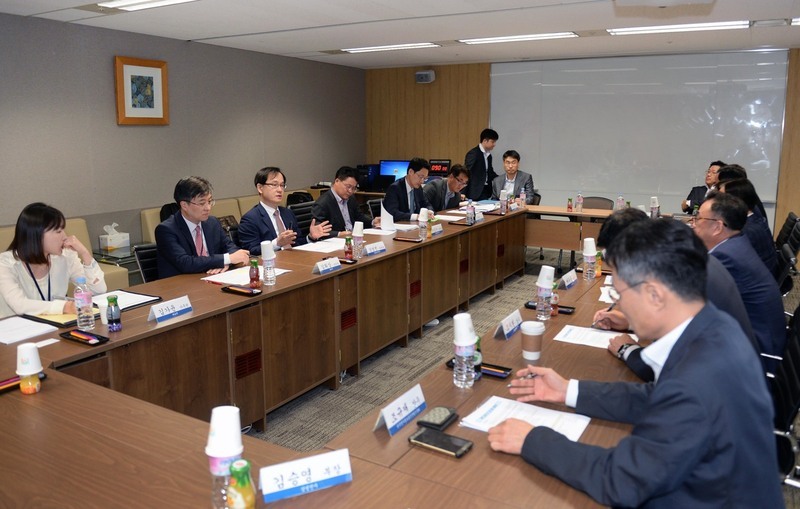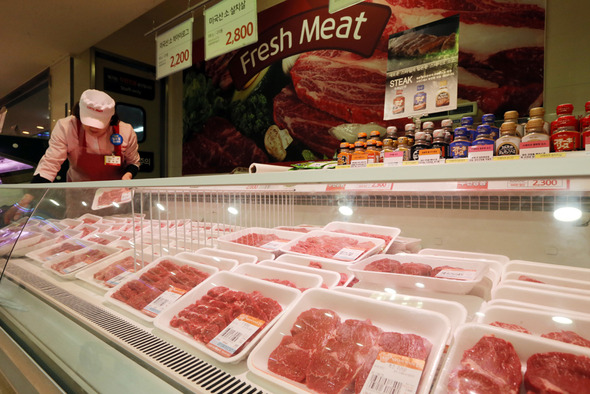 |
|
A government-organized agriculture and livestock industry roundtable on amending the KORUS FTA is held on Nov. 22 at aT Center in Seoul’s Yangjae neighborhood. (provided by Ministry of Trade, Industry, and Energy)
|
Safeguards on these goods and tariff-rate quotas have proven ineffective
Imports are up sharply for US beef, pork, powdered milk, and other items the South Korean government listed as being “protected as sensitive items” in the South Korea-US Free Trade Agreement (FTA), a study shows. At the same time, safeguards on agricultural products and tariff-rate quotas (TRQ) instituted in the agreement have proven powerless as protections. Han Seok-ho, director general of the Models and Policy Support Office at the Korea Rural Economic Institute (KREI), shared the findings in a presentation at a government-organized agriculture and livestock industry roundtable on amending the KORUS FTA held on Nov. 22 at aT Center in Seoul’s Yangjae neighborhood. According to Han’s findings, imports of US livestock products averaged 419,000 tons a year in the first five years after the FTA took effect (2012–2016), an increase of 19.4% in volume from the 351,000 ton average for the five years before (2007–2011). US beef imports rose 82.7% from 66,000 tons to 121,000 tons, while pork and powdered milk imports respectively rose 23% from 108,000 to 133,000 tons and 1,300% from 400 to 6,000 tons. Also participating in the discussion was Hanwoo (Korean Beef) Association chairman Kim Hong-gil, who complained that “agricultural product safeguards [emergency import restrictions imposing additional duties when imports exceed a certain volume] stipulated in the KORUS FTA are not doing their job at all to protect us.” The standards for invoking safeguards on US beef imports are currently too high, increasing by 6,000 tons a year from 270,000 tons in 2012 to 300,000 tons in 2017. The current FTA includes safeguard provisions for 30 farming and marine products, including beef, pork, and onions. In the case of pork, however, safeguards only apply to refrigerated meat, which accounts for just 5% of US pork imports. The Hanwoo Association called for abandoning the agreement and restoring the 40% tariff rate for the beef. “If renegotiations are unavoidable, then we should freeze duties at their current level (24%), increase the tariff abolition period from 15 to 20 years, and increase effectiveness by substantially lowering the standards for invoking beef safeguards,” the group said. When the FTA was ratified six years ago, the administration insisted it had successfully pushed for introduction of a “sensitive product protection system,” including safeguards, the maintenance of current tariffs, and long abolition periods of 10 to 15 years. Five years after the agreement took effect, however, the protective measures are appearing toothless amid the steep rise in imports of US farming products.
 |
|
A supermarket in Seoul selling meat products
|






